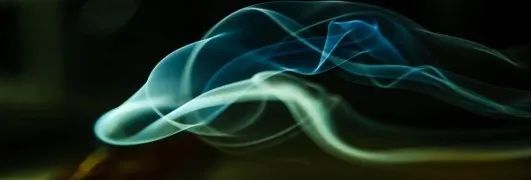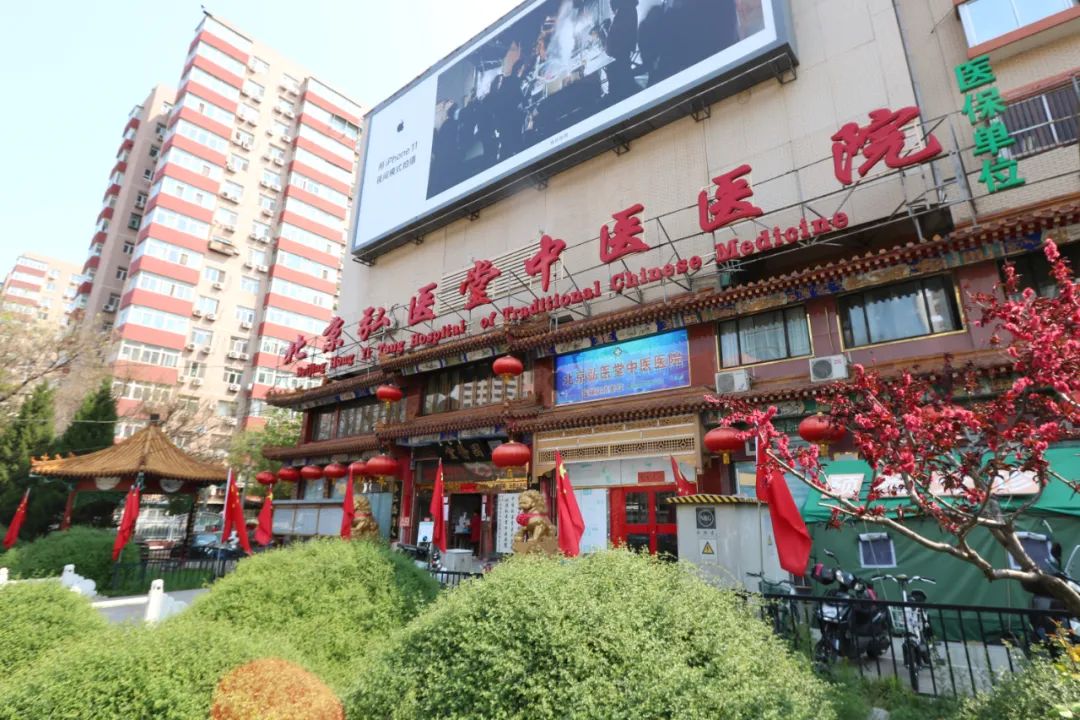
After the Major Heat, the weather is hot and often rainy, with dampness and heat intertwining to the extreme.
Prolonged exposure to such an environment, constantly subjected to the invasion of damp-heat evil qi, can easily induce damp-heat diseases.
Damp-heat disease is a common condition in Traditional Chinese Medicine (TCM), typically manifesting as a feeling of heaviness, dry mouth with a bitter taste, and oily skin.
It can also lead to issues in the digestive, respiratory, and urinary systems.

Damp-Heat Disease Specific Manifestations
Damp-heat disease is common in summer, but it can occur in all seasons.
The manifestations of damp-heat disease primarily include a heavy body and abdominal distension. The causes of damp-heat formation are complex and varied, with common causes including dietary habits, excessive fatigue, and hereditary constitution.
From a TCM perspective, heat evil is characterized by inflammation, depletion of qi, and stirring of blood, while damp evil is characterized by heaviness, stickiness, and a tendency to descend.
1. Poor Appetite
In summer, the heat and dampness can easily invade the spleen and stomach.
Modern diets often emphasize flavor, and with a preference for cold foods in summer, the spleen and stomach function may already be compromised, leading to poor appetite.
2. Heaviness and Abdominal Distension
Dampness is a yin evil, characterized by heaviness and stickiness, which can make the limbs feel heavy.
Excessive dampness can cause dysfunction in the spleen and stomach’s ability to transform and transport, leading to symptoms like abdominal distension.
3. Excessive Sweating and Qi Deficiency
Excessive sweating that feels sticky is also a manifestation of dampness and heat. TCM believes that “sweat is the fluid of the heart”; excessive sweating can easily damage heart qi, causing drowsiness throughout the day.
4. Chest Tightness and Shortness of Breath
In TCM clinical practice, chest tightness and shortness of breath are common in summer.
Dampness, being a yin evil, tends to obstruct yang qi, while the circulation of the cardiovascular system requires the propulsion of yang qi.
Individuals with pre-existing cardiovascular diseases are more likely to experience symptoms like chest tightness and myocardial ischemia.
Additionally, the following symptoms are also common:
❶ Yellowish, dark, and oily complexion.
❷ Dry mouth, bitter taste, bad breath, strong body odor, and excessive sweating.
❸ Dry or sticky stools; yellow, foul-smelling urine.
❹ Prone to tension, depression, anxiety, and anger.
❺ Severe damp-heat may present as: epigastric fullness, nausea, aversion to food, liver area distension and pain, alternating fever and chills, frequent and urgent urination, painful and scanty urination, abdominal pain and diarrhea, purulent blood in stools, and burning sensation in the anus.
❻ Skin issues: seborrheic dermatitis, rosacea, pustular acne, folliculitis, and carbuncles, with significant redness and pain. Or lower body fungal infections such as tinea corporis, tinea cruris, and tinea pedis.
❼ Liver and gallbladder diseases: hepatitis, acute jaundice hepatitis, gallstones, etc.
❽ Infectious diseases of the urinary and reproductive systems: bladder infections, urethritis, and pyelonephritis are more likely to occur during periods of excessive fatigue.
❾ Muscle and joint fatigue: prone to lower back pain and general soreness.
➓ Diabetes, hypertension, and stroke: high blood sugar and lipids can be attributed to excessive dampness.
Any one of these symptoms combined with a yellow, greasy tongue coating can generally confirm damp-heat!
 Where Does Damp-Heat Come From?
Where Does Damp-Heat Come From?
Individuals with a damp-heat constitution have damp-heat congealed within their bodies, akin to oil and flour sticking together.
Dampness can be external or internal.
External dampness is often due to a humid environment or exposure to water or rain.
Internal dampness is often related to the function of the spleen and stomach.
The spleen is responsible for the transformation and transportation of water and dampness; if one consumes excessive cold foods or drinks alcohol excessively, the spleen cannot function properly. The food and drink consumed cannot be transformed into nutrients to nourish the organs, leading to the stagnation of turbid substances and resulting in “internal dampness”.
The following four points are also causes of damp-heat constitution:
1. Excessive smoking and drinking, and frequent late nights.
2. Improper tonification.
3. Long-term emotional repression, using alcohol to drown sorrows.
4. Living in a damp-heat environment for extended periods.
 How to Improve Damp-Heat?
How to Improve Damp-Heat?
To regulate damp-heat, one can approach it through TCM syndrome differentiation, dietary therapy, and exercise.
TCM can address damp-heat at its root, typically using herbal medicine and acupuncture to eliminate damp-heat toxins.
Common formulas include San Ren Tang (Three Nut Decoction) and Gan Lu Xiao Du Yin (Sweet Dew Detoxification Drink). Acupuncture can stimulate acupuncture points to regulate the internal environment, promote the circulation of qi and blood, and help the body eliminate excess moisture and toxins, thereby improving the internal damp-heat environment.

How to Prevent Damp-Heat?
❶ Pay attention to a light diet, avoiding spicy, greasy, and seafood; drink less alcohol, eat more vegetables, and reduce meat consumption.
❷ Avoid excessive consumption of cold foods, as they can damage the spleen and stomach. TCM holds that “all dampness and fullness belong to the spleen”; if the spleen and stomach are not functioning well, internal dampness cannot be transformed, and resistance is weakened, making one more susceptible to heat invasion.
❸ Regularly consume foods that dispel dampness, such as mung beans, coix seeds (not recommended for pregnant women), winter melon, loofah, adzuki beans, watermelon, and green tea.
❹ Develop healthy lifestyle habits and behaviors, and exercise appropriately! Exercise can strengthen the spleen; when the spleen is strong, dampness will naturally dissipate.
Generally, healthy individuals should ensure about 40 minutes of exercise daily, with appropriate sweating to help automatically clear internal “dampness”.
Related Statements:
1. This article is for communication and sharing purposes, aimed at disseminating health knowledge.
2. The herbal formulas mentioned are provided for reference; please use them under the guidance of a qualified physician and do not self-medicate blindly.
3. Images are sourced from the public image library of WeChat official accounts.
4. Hongyi Hall TCM respects intellectual property rights; if there is any improper use or disagreement regarding the above content, please contact us at [email protected], and we will address it promptly.
5. The comment section at the end of the article is open for discussion; we welcome active participation.
Previous Reviews During the dog days of summer, do these 7 things to truly nourish your health
During the dog days of summer, do these 7 things to truly nourish your health Why is most lung cancer diagnosed at an advanced stage?
Why is most lung cancer diagnosed at an advanced stage? Didn’t expect that this year’s dog days of summer “back tanning” became popular
Didn’t expect that this year’s dog days of summer “back tanning” became popular
Hongguo Medical Benefits the World Virtue and Kindness in Treating Others
Defending Original TCMProtecting health, we are always here∨ Beijing Hongyi Hall TCM Hospital
Beijing Hongyi Hall TCM Hospital
-
Address: No. 2, Tuanjiehu North Road, Chaoyang District, Beijing (50 meters east of Changhong Bridge on the East Third Ring Road)
-
Transportation: Subway Line 10, Tuanjiehu Station, Exit C (Bus to Changhong Bridge or Tuanjiehu Station)
-
Phone: 010-65827961
-
Clinic Hours: 07:30–21:00
Click to follow Hongyi Hall TCM ☝
We meet every morning at 7 o’clock, don’t miss it
Give a like, tap to seeto encourage us☟☟☟

